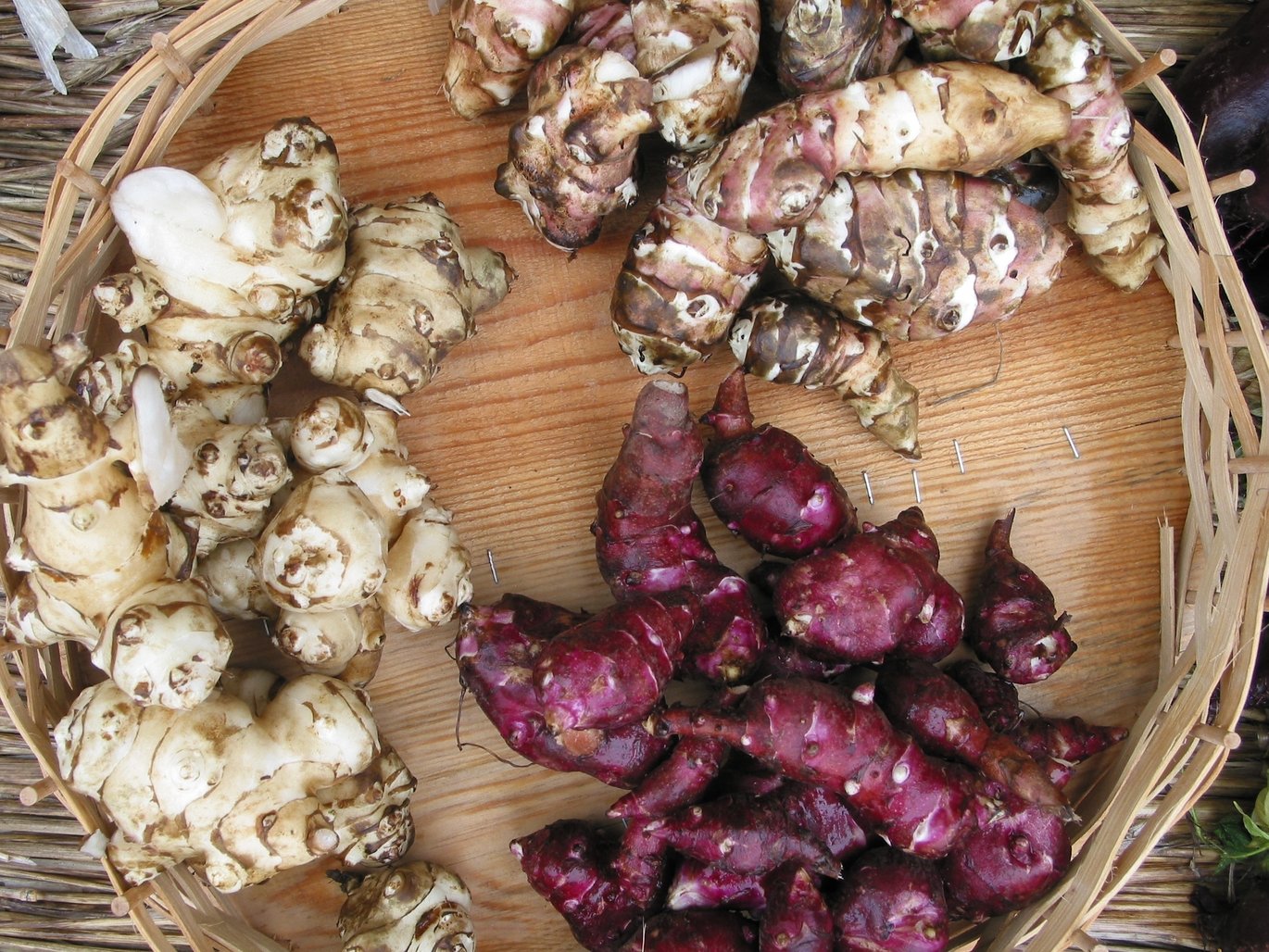Old gold in the vault
Aarhus University has a bank – a gene bank – in which important clones of Jerusalem artichoke, hops and other plants are stored for the future.

Researchers and research technicians at Aarhus University are storing the biodiversity of a series of valuable crops in a gene bank at research centre AU Aarslev on the island of Funen. The collection contains varieties of Jerusalem artichoke, rhubarb, horseradish, shallots and hops. The clone collection containing 18 different varieties of Jerusalem artichoke is considered unique, with different colours and with different harvesting times.
The collection is important, as the old varieties may one day prove interesting, if – for example – the currently used ones are found to be no longer resistant to diseases. At the same time, they also provide the base for a greater biodiversity, should the demand arise for the cultivation of new varieties.
- The different clones and varieties can have different properties, such as appearance, variations in taste, resistance to disease and pests, harvesting times and so on, explains scientific officer Merete Brødsgaard.
Different contents
The Jerusalem artichokes are characterised for their inulin content, shape and colour, as well as yield and harvesting time. For select Jerusalem artichokes, the eating quality in raw and cooked form is also evaluated. In this there are significant differences, and it is thus important to choose the correct variety, depending on whether the artichokes are to be eaten raw in a salad, or served in an artichoke soup.
The clone collection of rhubarb is primarily characterised for malic acid and oxalic acid contents, as well as appearance, yield and harvesting time. The collection of hops clones consists of clones originating from Carlsberg’s research laboratories, foreign hops varieties and varieties that have been collected from different parts of the country. Some of the collected hops plants have been characterised alongside foreign hops varieties with regard to their cultivation properties, resistance to problematic fungal infections as well as their specific qualities relating to taste, bitterness and brewing properties.
The origin of the clones in the horseradish collection is both domestic and international. One quarter of the horseradish collection consists of selected clones from breeding programmes carried out in the 1960s and 70s at the Danish Institute of Agricultural Sciences. The rest consists of regional or national varieties that were gathered in 1957-64 and 2002. The collection up to 2002 has been characterised in terms of yield and eating quality. The horseradish plants collected in 2002 have yet to be characterised and studied for eating quality and chemical content.
- We would like to map out the characteristics of all the varieties and clones, but so far there haven't been sufficient funds, says Merete Brødsgaard.
The different examples have been collected from all across Denmark, most frequently through advertisements in professional magazines and local media, but sometimes the flow goes the other way.
- People come to us and request specific clones from their region. This includes – for example – local clones of hops, which people would like to use to brew local beer, explains Merete Brødsgaard.
A living bank
The gene bank is a living bank in the most literal sense, inasmuch that the collection consists of living plants on research fields that are kept and tended daily. Physically, the gene bank takes up roughly 1/3 hectares in the fields at AU Aarslev. In addition to that, there are security copies of all the clones of Jerusalem artichoke and selected clones and varieties of horseradish. These are kept at the organic farm and box supplier Aarstiderne (“The Seasons”).
The plants are usually nursed using organic concepts, but in the event of serious disease outbreaks, chemical treatments can also be used.
Read more about the gene bank here.
Also read the article “Saving roots for posterity”.
Maintenance of the gene bank is an obligation in the contract with the Ministry of Food, Agriculture and Fisheries.
Numbers in gene bank
Species Number of clones or varieties
Rhubarb 80 varieties
Jerusalem artichokes 18 varieties
Horseradish 59 clones and varieties
Shallots 31 clones
Hops 46 clones
For further information please contact: Scientific officer Merete Brødsgaard Henriksen, Department of Food Science, phone: +45 8715 8332, e-mail: merete.brodsgaard@agrsci.dk
